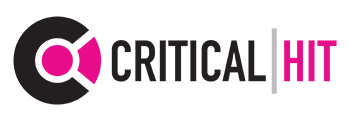In the ever-evolving healthcare landscape, automation is crucial in enhancing efficiency and accuracy within billing systems. With the increasing complexity of payment models and regulations, healthcare providers are turning to automated solutions to reduce administrative burdens and streamline workflows. Organizations can significantly improve billing processes, mitigate errors, and ensure timely collections by implementing advanced technologies such as hospice management software. This transition supports financial sustainability and enhances patient care by allowing healthcare professionals to focus more on delivering quality services than dealing with tedious billing tasks.
The Need for Automation
The need for automation in billing processes cannot be overstated in an increasingly complex healthcare landscape. As healthcare providers deal with a growing volume of claims, managing these processes manually can lead to widespread inefficiencies, errors, and delays. Automation not only reduces the burden on administrative staff, enabling them to focus on more critical tasks but also enhances accuracy in billing. By implementing hospice management software that automates repetitive tasks, healthcare organizations can streamline their operations, ensuring timely billing and increased cash flow.
Moreover, the need for real-time data and analytics in healthcare has never been more essential. Automated systems allow healthcare organizations to monitor billing performance continuously, identify trends, and swiftly address discrepancies. This level of insight helps organizations improve their financial management and optimize their operational strategies, ultimately leading to better patient care and satisfaction. Embracing automation in hospice management helps to create a more efficient and responsive billing environment, which is vital for adapting to the evolving demands of the healthcare sector.
Benefits of Automation in Healthcare Billing
Automating healthcare billing processes presents several undeniable benefits that enhance overall operational efficiency. One major advantage is the significant reduction in billing errors that can occur through manual processing. Automated systems leverage sophisticated algorithms to input data and generate invoices, ensuring that information is consistent and accurate. This minimizes the chances of claim denials due to errors and enhances the speed of processing claims. As a result, healthcare organizations can expect quick turnaround times for reimbursements, allowing them to maintain positive cash flow and sustainably manage their financial health.
Another compelling benefit of automation is the ability to generate real-time reports and analytics. This feature empowers organizations to make data-driven decisions quickly and efficiently. With an integrated hospice management system, administrators can monitor key performance indicators, track the status of claims, and identify areas for improvement without manual data gathering. By having access to these insights, healthcare providers can adapt their strategies almost in real-time, helping to optimize operations and improve patient satisfaction—creating a cycle of continuous enhancement in service delivery.
Features of Effective Automated Billing Systems
Effective automated billing systems incorporate several key features that enhance functionality and usability. One primary feature is the ability to integrate with various electronic health record (EHR) systems to streamline data flow, says this government source. This integration ensures that patient information, billing codes, and service details are automatically updated in real time, reducing manual data entry and minimizing errors. Additionally, user-friendly interfaces facilitate quick navigation, allowing staff to access essential information and process transactions efficiently. The capability for customizable billing rules further enhances accuracy by accommodating the specific needs of different healthcare providers, ensuring that all regulations and policies are adhered to properly.
Another important feature is the provision of secure billing compliance and data protection measures. Effective automated billing systems utilize encryption and secure cloud storage to safeguard sensitive patient information, ensuring compliance with regulations such as HIPAA. Such systems also provide automated alerts for potential compliance issues, helping organizations stay ahead of regulatory changes and avoid costly fines. Furthermore, robust reporting capabilities enable organizations to generate insights on billing performance, claim statuses, and revenue cycles, empowering leadership with the data to make informed strategic decisions.
The Future of Billing Automation in Healthcare
The future of billing automation in healthcare promises to be transformative, with advanced technologies poised to reshape the landscape significantly. As artificial intelligence (AI) and machine learning continue to evolve, these technologies will enhance the capabilities of hospice management software by improving predictive analytics and automating complex decision-making processes. This means that billing systems will manage data efficiently and learn from past transactions to anticipate future billing scenarios, thus facilitating quicker resolutions for claims and minimizing bottlenecks often plaguing healthcare organizations. As interoperability between systems increases, seamless communication between electronic health records (EHRs) and billing infrastructures will further streamline operations, ensuring that patient care remains a priority. At the same time, financial processes become quicker and more efficient.
Moreover, integrating blockchain technology will revolutionize billing automation by enhancing transparency and security. Blockchain could provide an immutable ledger for every transaction, allowing healthcare providers to track claims and payments with unparalleled accuracy. This mitigates fraud risks, and fosters trust among patients and providers alike. As healthcare regulations continue to evolve, automated billing systems must adapt accordingly, ensuring compliance while accommodating shifting demands such as telehealth services, according to Mayo Clinic.
Final Thoughts
In conclusion, integrating automation in healthcare billing processes represents a pivotal advancement that streamlines operations and enhances patient care quality. By reducing errors, providing real-time data analytics, and ensuring compliance with regulatory standards, healthcare organizations can foster a more efficient financial environment. As technology evolves, embracing sophisticated tools, such as hospice management software, will be essential for healthcare providers aiming to navigate billing complexities while maintaining a strong focus on delivering exceptional patient services.




















